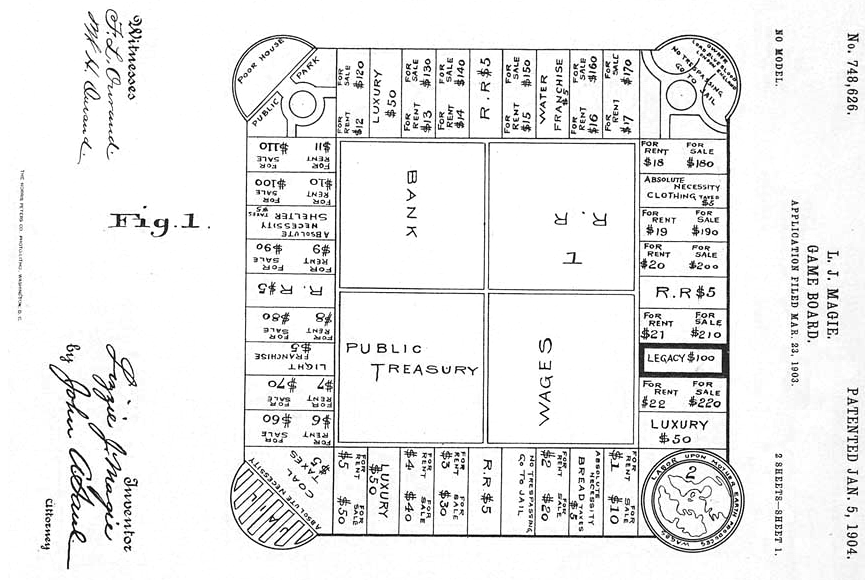Monopoly: the board game

In 1903, Elizabeth Magie, a self-declared left-wing feminist, patented the Landlord’s Game, the forerunner of the now world-famous Monopoly board game.
Today, Monopoly is more associated with capitalism than any left-wing ideology, but in the early years of the 20th century, the original goal of the game was not to see how much wealth a player could hoard (while fighting with his family members).
At the time, Magie was an avid follower of Henry George, a US economist who advocated for a tax on land, as he believed that the economic value derived from land should be shared between all members of society. The idea was not resonating with the US public and Magie wanted to find a better, easier way to teach the public about why the single land tax was important.
She knew that speaking about the proposed tax reform in Town Halls and public discussions would not attract new supporters for the cause. So what did she do?
Magie decided that a board game would be the ideal medium to reach people who did not follow politics. The Landlord’s Game was born and in Magie’s own words the game “is a practical demonstration of the present system of land-grabbing with all its usual outcomes and consequences”. However, this marketing strategy did not work as she intended, and the game did not spread as far as she hoped.
It was only when Charles Darrow played the game at his friends’ house and went on to sell it to Parker Brothers himself that the board game grew to what we now know as Monopoly.
Although the original aims of Magie with the game were lost over the years, she has now reached more people through her invention than she probably thought it would, back in 1902. On the other hand, the game did become a symbol of the ugly side of capitalism and the hoarding of economic wealth, so maybe Magie did succeed after all?